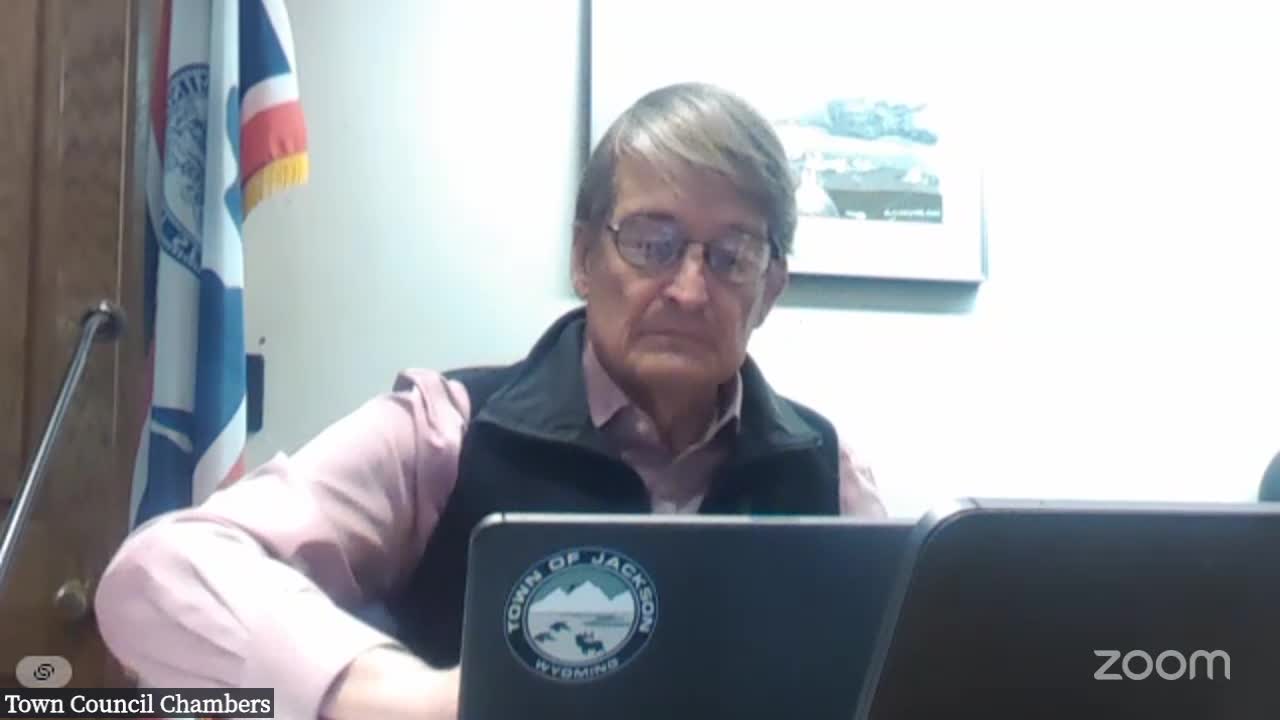Jackson council adds scoping study on affordable commercial space to work plan
Get AI-powered insights, summaries, and transcripts
Subscribe
Summary
Staff will research zoning and nonregulatory tools to help preserve affordable retail and small-business space in Jackson after council voted to place a scoping report on the town—s list of potential projects for the upcoming retreat.
At its Jan. 6 regular meeting, the Jackson Town Council voted unanimously to direct staff to add a scoping study on affordable nonresidential zoning strategies to the council—s list of potential projects for future consideration. Councilman Checker moved the direction and Councilwoman Beaman seconded the motion.
The study will examine whether the town should pursue zoning and other tools to address rising commercial rents and the loss of locally oriented businesses in downtown Jackson, staff said. Planning and Building Director Paul Anthony described the agenda item as "a scoping report" meant to identify the staff time, consultant needs, estimated costs and options for further research.
Anthony told the council the report asks two central policy questions: whether the council wishes staff to investigate limits on residential floor area, and whether to expand research to commercial development and accessory uses. He said staff found a spectrum of tools used elsewhere, from incentives and code revisions to restrictive limits on formula businesses, but did not find any community that requires permanently affordable retail or commercial space analogous to affordable housing requirements.
Staff outlined possible approaches and rough resource estimates. A program that would require affordable commercial space would likely be complex and could take roughly two to three years to design, Anthony said, with a consultant-supported cost estimate on the order of $200,000$400,000 and about 200to 400 staff hours. Simpler optionsfor example, creating incentives or reducing zoning barrierswere estimated at roughly eight months to a year of staff time. Anthony said another possible approach is to set aside town-owned spaces on a pilot basis to support local-serving nonprofits or small businesses.
Council members discussed examples from other communities and whether the town has the capacity to pursue the more complex regulatory approaches. Anthony told the council he reviewed measures in Park City, Boston, San Francisco, New York City and Portland, noting examples such as Park City—s limit on a number of conventional chain businesses in a downtown district, Boston—s additional floor-area options for developments that provide ground-floor public benefits (for example, on-site childcare or nonprofit cultural uses), San Francisco—s special-use permit for businesses with many locations, and Portland—s floor-area bonuses for community benefits. He also said the town—s existing affordable-housing mitigation and nexus study are not matched by an analogous, established model for commercial space.
Several council members emphasized process and resources. Councilman Checker flagged Nantucket—s nonprofit-led approach to purchasing and leasing storefronts as an instructive model and noted staff capacity concerns. Other council members said they wanted the issue prioritized for the council retreat so it could be considered alongside other items on the PI list (potential projects list) and weighed against staff and budget constraints.
The council voted to "direct staff to place this item on the PI list for future consideration," an action Councilman Checker made and Councilwoman Beaman seconded. The motion passed unanimously.
Next steps, as described by staff, are for the item to be included on the retreat agenda where the council will set priorities and, if desired, direct staff to proceed with further research or consultant support. Staff advised that a more detailed analysis would include legal review, a public-engagement plan and potential consultant procurement if the council seeks a requirement-based program rather than incentive-based approaches.
